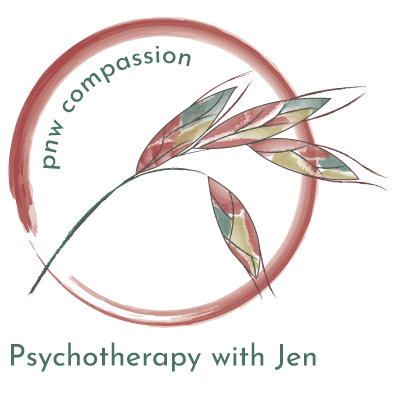Compassionate Mind Training–CMT: An 8 Week Transformation
Might you benefit from this course?
Do you compare yourself harshly with others and feel you’re not good enough? Are there things you say to yourself that you would never say to a friend? Is it difficult for you to care for yourself, especially when you’re struggling? If so, you might find this 8-week course in Compassionate Mind Training (CMT) helpful, even transformational.
What is CMT?
Compassionate Mind Training (CMT) involves ideas and exercises that are scientifically proven to increase compassion for ourselves and others. Research conducted on this course found that it led to a number of positive benefits, including improvements in compassion, self-reassurance, emotional wellbeing and reductions in self-criticism. Read more about the research here.
How is the Course Structured?
We’ll meet by Zoom for 8 weeks, each session is approximately 2 hours. Each week will there will be lecture, experiential exercises, and breakout groups to explore the content with other group members (if you register with family/friends/colleagues you may request to be in breakout groups together).
In between sessions, you’ll have access to audio recordings of the compassion exercises done during class. These practices will strengthen and cultivate your compassionate mind.
The content and practices of each week build on each other giving participants the felt-experience of reduced self-criticism, ability to tolerate and work through difficult emotions like anger, anxiety, and shame.
Group members learn to be more compassionate with themselves, with others and less uncomfortable with accepting the compassionate acts of others toward themselves.
Practices and Skills:
- Mindfulness – The practice of being aware of what is happening in this exact moment, on purpose and without judgment. We’ll learn many ways of developing mindfulness in formal and informal practices.
- Somatics – We’ll practice various ways of focusing the breath to create an inner calm and emotional stability. We’ll also learn how body posture and voice tone can increase confidence to act courageously.
- Compassion Exercises– By way of imagery, invoking memory and imagination, method acting, and somatic exercises we cultivate our compassionate minds and intuitive wisdom.
Is this therapy?
No. The CMT course is offered to the general public and while people find therapeutic value from the course, it’s not therapy per se. It’s a lovely adjunct to your personal or couples counseling.
If you live in Oregon or Washington and are interested in compassion-focused therapy groups please follow the link below to the CFT groups offered weekly.
All of my individual work and couples work is also grounded in CFT / CMT though less structured than the groups.


